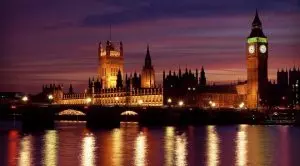 British lawmakers, gambling industry representatives, anti-gambling campaigners and members of the public have been expecting compulsory affordability checks to be proposed in the sector in the review of the industry carried out by the UK Government, a new report by Ernst and Young claims.
British lawmakers, gambling industry representatives, anti-gambling campaigners and members of the public have been expecting compulsory affordability checks to be proposed in the sector in the review of the industry carried out by the UK Government, a new report by Ernst and Young claims.
Research that was carried out for the trade body of the legal gambling and sports betting sector in the country – the Betting and Gaming Council (BGC) – found that the industry kept its good performance throughout the year, although it faced the negative financial effect of the Covid-19 pandemic and the ongoing economic challenges associated with the constantly increasing energy prices and overall cost of living.
So-called “affordability checks” are expected to be part of the long-awaited white paper of the UK gambling review, especially considering that a large number of anti-gambling campaigners have been calling for the Government and the competent regulatory bodies to implement stricter financial checks. BGC members, however, have been anticipating to see a reduction in their revenues if such measures are rolled out.
The report issued by Ernst and Young has valued the contribution of legal gambling and sports betting operators to the country’s economy at a total of £7.1 billion, with the sector’s annual contribution to the UK Treasury being estimated at £4.2 billion. The gross gambling yield (GGY), however, has declined since the middle of 2021.
When it comes to the affordability checks’ impact on racing, reports claim that the consequences could be devastating for the industry.
According to the Betting and Gaming Council, the reopening of brick-and-mortar venues, the sharp decline in incomes of local households, and the introduction of online affordability checks had probably been reflected in the aforementioned results. The UK gambling sector’s trade body also warned that the decline of the regulated gambling and betting market could scare punters away and encourage them to place bets with companies operating in the black market.
Michael Dugher, CEO of the BGC, shared that the aforementioned contribution of the sector to the country’s coffers is not guaranteed. He also shared that the gambling sector needs to thrive in order to keep its status as a world leader. That is why Mr Dugher called for British lawmakers to make sure the long-awaited white paper is balanced and evidence-led so that their decisions guarantee a sustainable future for the sector.
The Betting and Gaming Council’s boss further noted that the Government has to provide more clarity on affordability checks because the trade body’s members were very concerned about a possible massive outflow of customers, and money, respectively, toward the unregulated black market. Apart from the serious losses that could cost them, licensed and regulated gambling providers note that the black market features none of the safer gambling tools aimed at protecting customers from potential gambling-related harm.
British Punters Are Giving Up Gambling or Turning to the Black Gambling Market Due to Intrusive Affordability Checks
 British punters and racing fans in the UK, who have been gambling literally throughout their entire lives so far, seem to be walking away from the sport or turning to the illegal black market following the effects of the intrusive affordability checks that have lately been implemented in the betting and racing sector.
British punters and racing fans in the UK, who have been gambling literally throughout their entire lives so far, seem to be walking away from the sport or turning to the illegal black market following the effects of the intrusive affordability checks that have lately been implemented in the betting and racing sector.
According to interviews and submissions from a large number of customers, many of them have been raging about the obligatory financial checks that apply to gambling operators in the country. Recently, the Racing Post reported that some punters have even acknowledged that they were close to giving up their normal leisure activity, while others shared they felt it was pointless to continue betting, considering the serious affordability checks.
As previously reported by Casino Guardian, affordability checks, under which punters are being asked to provide proof of income, have been introduced long before the Government has set out the proposals on affordability in the much-delayed white paper. The stricter checks, however, have been described as a violation of civil liberties by affected customers who claim such measures should not be applied as long as an individual’s discretionary expenditures are concerned.
The UK Gambling Commission (UKGC) claims that it has never asked operators to make such interventions, despite that, gambling companies have been pretty much forced to adopt the checks due to lack of regulatory clarity, so many of them did so under the fear of facing massive financial punishments. That is why gambling operators have criticised the UKGC, saying that the regulatory body has mandated them in the most intrusive form.
Now, some players are concerned that they would not be able to provide the required proof of income, which, logically, would limit their chance to place bets with licensed gambling and betting companies. Other players have shared that their annual turnover had substantially fallen due to the smaller number of accounts they have to play through, and the fact that they are forced to place a limited amount as bets.
Reportedly, some gambling operators, such as William Hill and Betfair, had closed some of their customers’ accounts due to the patrons’ unwillingness to provide them with the necessary source-of-funds information. Others, such as Ladbrokes Coral, have contacted users and informed them that they are required to give the necessary information about their income in order to be allowed to increase their betting limit.
The overall inconsistency in the operators’ approach when it comes to retrieving the necessary financial information seems to be pushing away British bettors. Some of them have been preparing to turn down their gambling habits, while others have confessed they might turn to illegal and unlicensed companies that operate in the black market and do not require such personal information.
Amount Lost by British Gamblers on Unlicensed Online Gambling Platforms Doubles in Only Two Years
 The Betting and Gaming Council and some British punters have said that affordability checks came as a disproportionate response to problem gambling behaviour that usually affects only a small number of customers. According to the trade body representing the legal gambling sector in the UK, the problem gambling rate in the country fell from 0.4% in the year ending in March 2021 to 0.3% in the year ending in March 2022.
The Betting and Gaming Council and some British punters have said that affordability checks came as a disproportionate response to problem gambling behaviour that usually affects only a small number of customers. According to the trade body representing the legal gambling sector in the UK, the problem gambling rate in the country fell from 0.4% in the year ending in March 2021 to 0.3% in the year ending in March 2022.
However, the more restrictive regulation of the white gambling market, including the growth of affordability checks, has made the unregulated black market more appealing to customers.
According to data included in a report that the BGC published in 2021, the number of customers using an unlicensed online gambling platform has increased from 210,000 to 460,000 over a two-year period. Furthermore, the amount lost to the gambling and racing industry through unlicensed operators’ websites had doubled, reaching £2.8 billion.
Some market analysts have explained that affordability checks have unleashed a process that could see an outflow of punters from the legal gambling sector to unlicensed operators who simply care neither for the Government’s white paper nor the regulatory requirements for the promotion of safe and responsible gambling. For the time being, the number of people who have turned to unlicensed and unregulated operators remains small but some of the players who did so are high-rollers who usually place bigger bets.
However, some market experts have warned that the UK Government and regulatory authorities should adopt a more tailored approach in order to prevent the potential negative effects a more restrictive policy could bring to the regulated gambling, betting and racing sector in the country.
- Author


